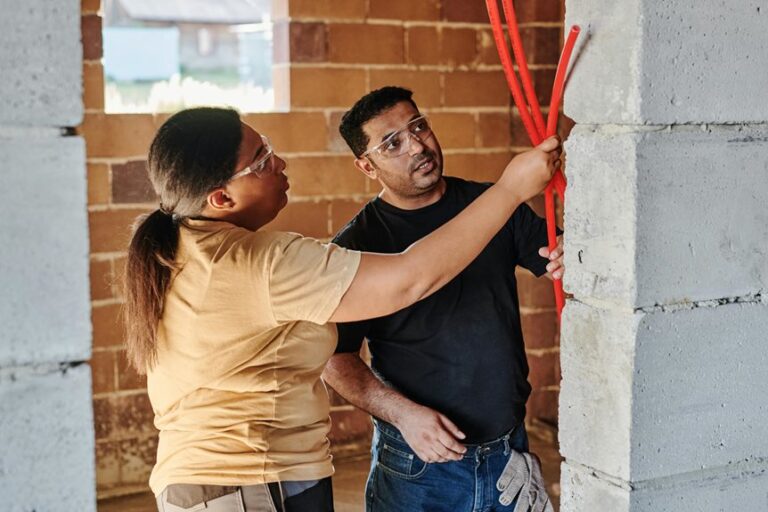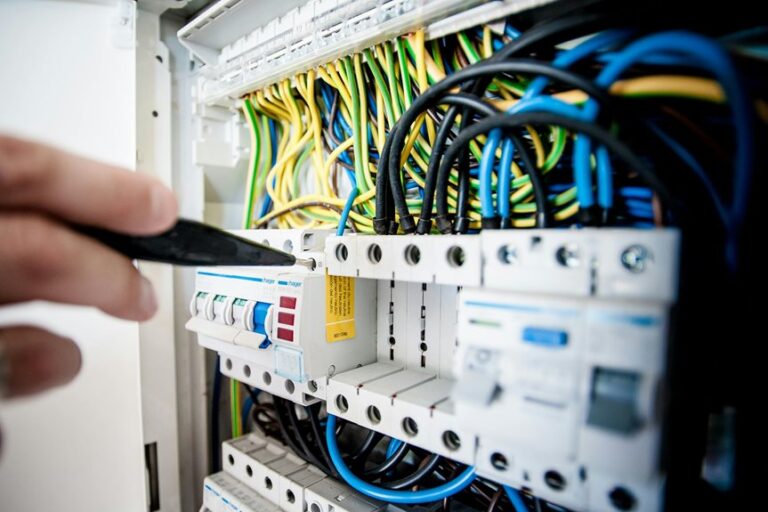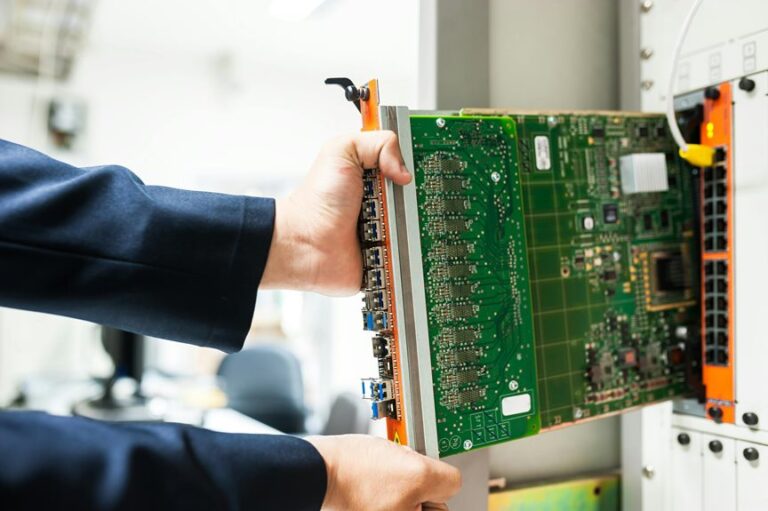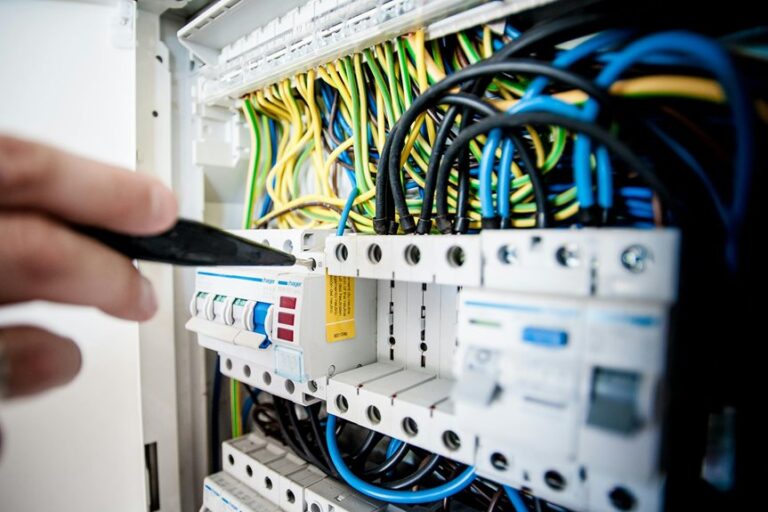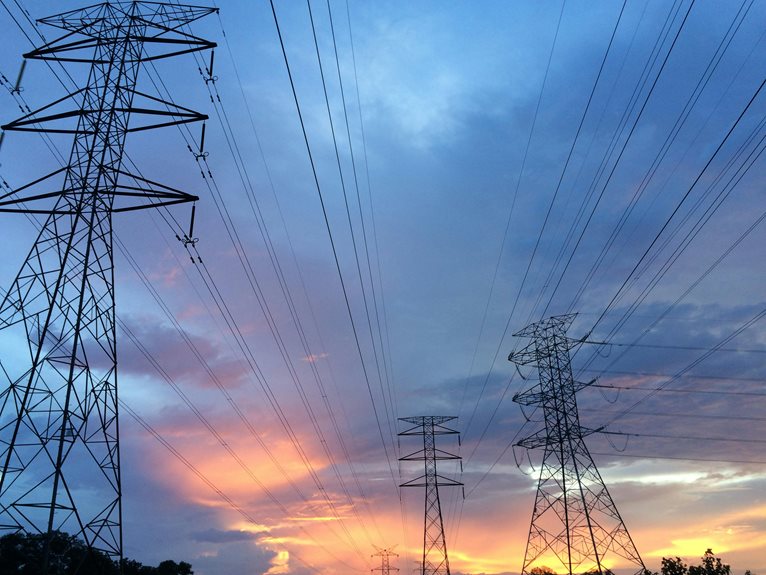You understand that electrical safety inspections and certifications are essential for maintaining the integrity of your electrical systems. Regular assessments can pinpoint hazardous issues like outdated wiring or overloaded circuits, which could pose serious risks. Certified professionals evaluate your setup against current codes, ensuring compliance and safety. However, the question remains: how often should these inspections occur, and what specific benefits do certifications provide? The answers might influence not just safety but also financial aspects of your property.
Importance of Electrical Safety
When it comes to guaranteeing the safety of your home or workplace, understanding the importance of electrical safety is fundamental. Electrical systems can pose serious hazards, including fires, shocks, and equipment damage if not properly maintained. Recognizing these risks empowers you to take necessary precautions and implement best practices.
You should regularly inspect electrical components, such as wiring and outlets, to identify signs of wear or damage. Faulty wiring can lead to overheating and potential ignition sources, making routine checks essential.
Additionally, verify that circuit breakers and fuses are appropriately rated for your electrical load; this reduces the risk of overloads that can result in dangerous situations.
Utilizing qualified professionals for installations and repairs is imperative. They bring expertise and knowledge of local codes and standards, which mitigates risks. Moreover, proper grounding and bonding of electrical systems prevent shock hazards and equipment malfunction.
Staying informed about electrical safety guidelines helps you create a safer environment. Familiarizing yourself with practices like using surge protectors and not overloading circuits can greatly reduce the likelihood of electrical incidents. Engaging with trusted electricians in Upland can further enhance safety measures in your electrical systems.
Prioritizing electrical safety safeguards both your property and personal well-being.
What to Expect During Inspections
During an electrical safety inspection, you'll go through a structured process that evaluates your system's integrity and compliance with safety standards.
Inspectors commonly identify issues like outdated wiring, overloaded circuits, and improper grounding that could pose risks.
Understanding the importance of certification will help you appreciate how these inspections protect both your property and your well-being.
Inspection Process Overview
As you prepare for an electrical safety inspection, it's important to know what to expect throughout the process. The inspection typically involves a thorough examination of your electrical systems, guaranteeing they meet safety standards. An inspector will assess everything from wiring and circuit breakers to grounding systems and panel connections.
Here's a brief overview of what's covered during the inspection:
| Inspection Focus | Importance |
|---|---|
| Wiring Integrity | Prevents electrical hazards |
| Circuit Breaker Functionality | Guarantees proper equipment protection |
| Grounding Systems | Protects against electrical shock |
You'll likely be asked questions regarding any previous electrical work, which helps the inspector gauge compliance with codes. They may also discuss preventive measures for future safety. The process can last a few hours, depending on the complexity of your electrical system, so be prepared for a detailed review. Remember, the goal is to guarantee your environment is safe and compliant, protecting both your property and the people within it.
#
Common Issues Identified
Electrical safety inspections can uncover a range of common issues that may compromise your system's integrity and safety.
One frequent problem is outdated wiring, which can lead to overheating or electrical fires. Inspectors will check for frayed insulation and exposed wires, both of which pose significant hazards.
Another common issue is improperly grounded systems. Grounding is essential for protecting against electrical shock and equipment damage. Your inspector will assess grounding connections to verify they meet current standards.
Additionally, overloaded circuits often surface during inspections. You might've too many devices plugged into a single outlet, which can cause breakers to trip or worse, ignite a fire. Inspectors will evaluate your circuit load and recommend necessary adjustments.
Defective or outdated circuit breakers are also a concern. If your breakers don't trip as intended, they can fail to protect your system. Inspectors will examine these components for functionality and compliance.
Lastly, improper use of extension cords can be flagged. While they're convenient, they shouldn't replace permanent wiring solutions.
Addressing these common issues promptly can enhance your system's safety and reliability.
Certification Importance Explained
Identifying common issues like outdated wiring and overloaded circuits highlights the need for certified professionals to conduct thorough electrical safety inspections.
When you engage a certified inspector, you're ensuring that your electrical systems aren't only compliant with current codes but also safe for daily use. During these inspections, expect a meticulous evaluation of your wiring, outlets, fuse boxes, and overall electrical design.
A certified inspector will check for potential hazards, such as exposed wires and faulty connections. They'll assess the load capacity of your circuits to prevent overheating and potential fires.
You can also expect them to evaluate grounding systems, which are essential for protecting both equipment and individuals from electrical shock.
Upon completion, you'll receive a detailed report outlining any deficiencies and recommending necessary repairs or upgrades. This certification not only assures you of safety but also enhances the value of your property.
Furthermore, having a certified inspection can be critical for insurance claims and for meeting regulatory requirements. Ultimately, investing in certified electrical safety inspections is a proactive step toward maintaining a safe, efficient, and code-compliant electrical system.
## Common Issues Identified
During electrical safety inspections, you might encounter common issues like faulty wiring connections and overloaded circuits.
These problems can lead to serious hazards, including electrical fires or equipment damage.
Identifying and addressing these issues promptly is essential for maintaining a safe electrical system in your home or business.
Faulty Wiring Connections
Faulty wiring connections often lead to significant safety hazards in residential and commercial settings. These issues typically arise from loose connections, improper terminations, or damaged wires, which can cause arcing and overheating.
When you inspect wiring, look for signs of wear, such as fraying or discoloration, which may indicate that the insulation has deteriorated.
A common problem is the use of inappropriate connectors or terminals that don't match the wire gauge, leading to a poor connection. This can create resistance, resulting in heat buildup that may ignite surrounding materials.
Additionally, if wires aren't securely fastened, vibrations or movements can exacerbate connection problems.
You should also be aware of the potential for moisture ingress, especially in outdoor or damp environments. Corrosion can compromise the integrity of connections, leading to further electrical failures.
Finally, verify that all wiring adheres to local codes and standards, as outdated or non-compliant installations are more susceptible to faults.
Regular inspections and timely repairs are essential to maintaining electrical safety. By addressing faulty wiring connections promptly, you can help prevent dangerous situations and guarantee a reliable electrical system.
Overloaded Circuits Issues
After ensuring all wiring connections are secure and compliant, it's vital to address the risks associated with overloaded circuits. Overloading occurs when the demand for electricity exceeds the capacity of the circuit, leading to potential hazards such as overheating, circuit failure, or even fire.
Common signs of overloaded circuits include flickering lights, frequent tripping of circuit breakers, and warm or hot outlet covers. You should monitor your power usage diligently. If you notice appliances or devices on the same circuit struggle to operate, it's a clear indication that you may be exceeding the circuit's capacity.
To mitigate these risks, you can redistribute the load among multiple circuits. Make sure high-wattage appliances are connected to dedicated circuits, and avoid using multiple high-demand devices simultaneously on the same outlet.
Implementing a load calculation can help you assess the total demand on each circuit. If necessary, consider upgrading your circuit breakers or hiring a qualified electrician to install additional circuits.
Benefits of Certifications
Certifications in electrical safety inspections offer significant advantages that enhance both your credibility and the quality of your work. When you hold a recognized certification, it signals to clients and employers that you possess the necessary skills and knowledge to conduct thorough and accurate inspections. This not only builds trust but also positions you as a reliable expert in the field.
Moreover, certifications often require ongoing education, ensuring you stay updated with the latest industry standards and technologies. This continuous learning process can lead to improved safety practices and more effective inspections.
Here's a quick overview of the key benefits of certifications:
| Benefit | Description |
|---|---|
| Enhanced Credibility | Builds trust with clients and employers. |
| Access to Opportunities | Opens doors to specialized jobs and projects. |
| Knowledge Update | Keeps you informed about the latest codes and standards. |
| Professional Growth | Encourages continuous education and skill improvement. |
How Often Inspections Are Needed
Regular inspections are vital for maintaining electrical safety in any setting, and they should typically be conducted every three to five years, depending on the specific environment and usage.
However, certain circumstances may necessitate more frequent assessments. Understanding when to schedule inspections can help prevent potential hazards.
Consider these factors when determining inspection frequency:
- Usage Intensity: If your electrical systems are in heavy use—like in commercial facilities—annual inspections might be warranted.
- Environmental Conditions: Areas with high humidity or dust accumulation can lead to accelerated wear and tear, necessitating more frequent checks.
- Age of Electrical Systems: Older installations may require inspection every two years to address potential deterioration issues.
- Recent Modifications: If you've made upgrades or alterations to your electrical systems, a prompt inspection is essential to guarantee compliance and safety.
Choosing a Qualified Inspector
Selecting a qualified inspector is vital to guaranteeing the safety and compliance of your electrical systems. Start by verifying their credentials. Look for certifications from recognized organizations, such as the National Institute for Certification in Engineering Technologies (NICET) or equivalent. These credentials indicate that the inspector has undergone rigorous training and possesses relevant expertise.
Next, assess their experience in the specific type of electrical inspection required. An inspector with a proven track record in residential, commercial, or industrial settings will understand the nuances and regulations applicable to your situation. Request references to gauge their past performance and reliability.
You should also inquire about their familiarity with local codes and regulations. A qualified inspector must stay updated on the latest safety standards and legislative changes. Many inspectors are familiar with the electrical codes in Riverside, which can further ensure their suitability for your needs.
Don't hesitate to ask about their inspection process and reporting methods; a thorough, transparent approach is vital for your peace of mind.
Lastly, consider their communication skills. An effective inspector should be able to explain technical issues clearly and provide actionable recommendations.
Conclusion
In the landscape of electrical safety, inspections and certifications act as your safety net, catching potential hazards before they become disasters. By prioritizing these assessments, you're not just checking a box; you're weaving a fabric of security that protects your home and loved ones. Just as a lighthouse guides ships safely to shore, a qualified inspector illuminates the hidden risks in your electrical system. Embrace the peace of mind that comes with regular inspections, and let safety be your guiding light.


